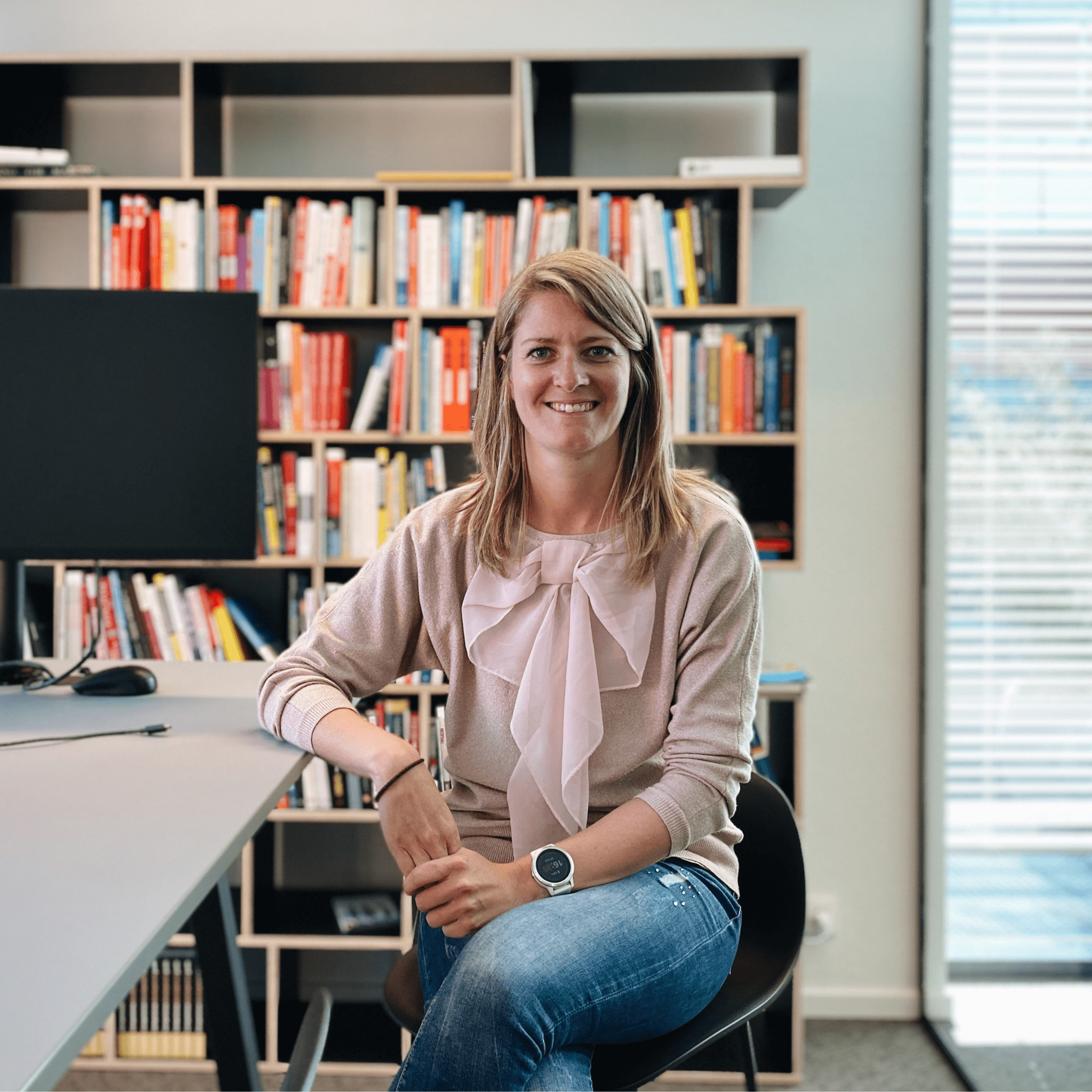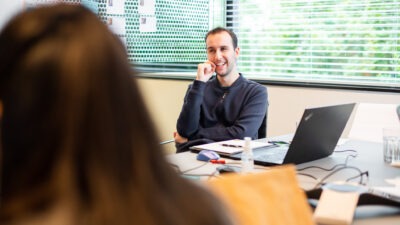Technical Analyst Dries about communicating, self-development & life
on 21 April 2021 for GraduatesMeet Dries Boonen: Technical Analyst, sports enthusiast and music lover. He helps form a bridge between IT-professionals, clients and partners at insurance giant Baloise.
Dries’ specs
- 25 years old
- Graduated as an Industrial Engineer Electronics-ICT in June 2019
- Studied abroad in Sweden
- Loves running, cycling, mountain biking, reading and going wild at live concerts (when possible). He’s also a beekeeper.
- Technical Analyst at Swiss insurance company Baloise since 2019
Why did you choose Exellys?
In my final year, for one of my courses, a bunch of organisations hosted guest lectures about data science topics, security topics, things like that. Different companies pitched different topics as well as talking a little about the company itself. Exellys was one of them.
“Exellys stayed with me the most because of the self-development factor. Being able to jumpstart your professional career in your first year on the job market.”
Exellys stuck with me the most because of the self-development factor. Being able to jumpstart your professional career with their training and coaching programs, seemed like a no-brainer.
When I started interviewing after graduation, I talked to different companies. I wanted to see what was out there, explore what was happening in consultancy, but nothing stood out like Exellys did. None of the other companies I saw had the same approach. So, I haven’t regretted my choice for a second.
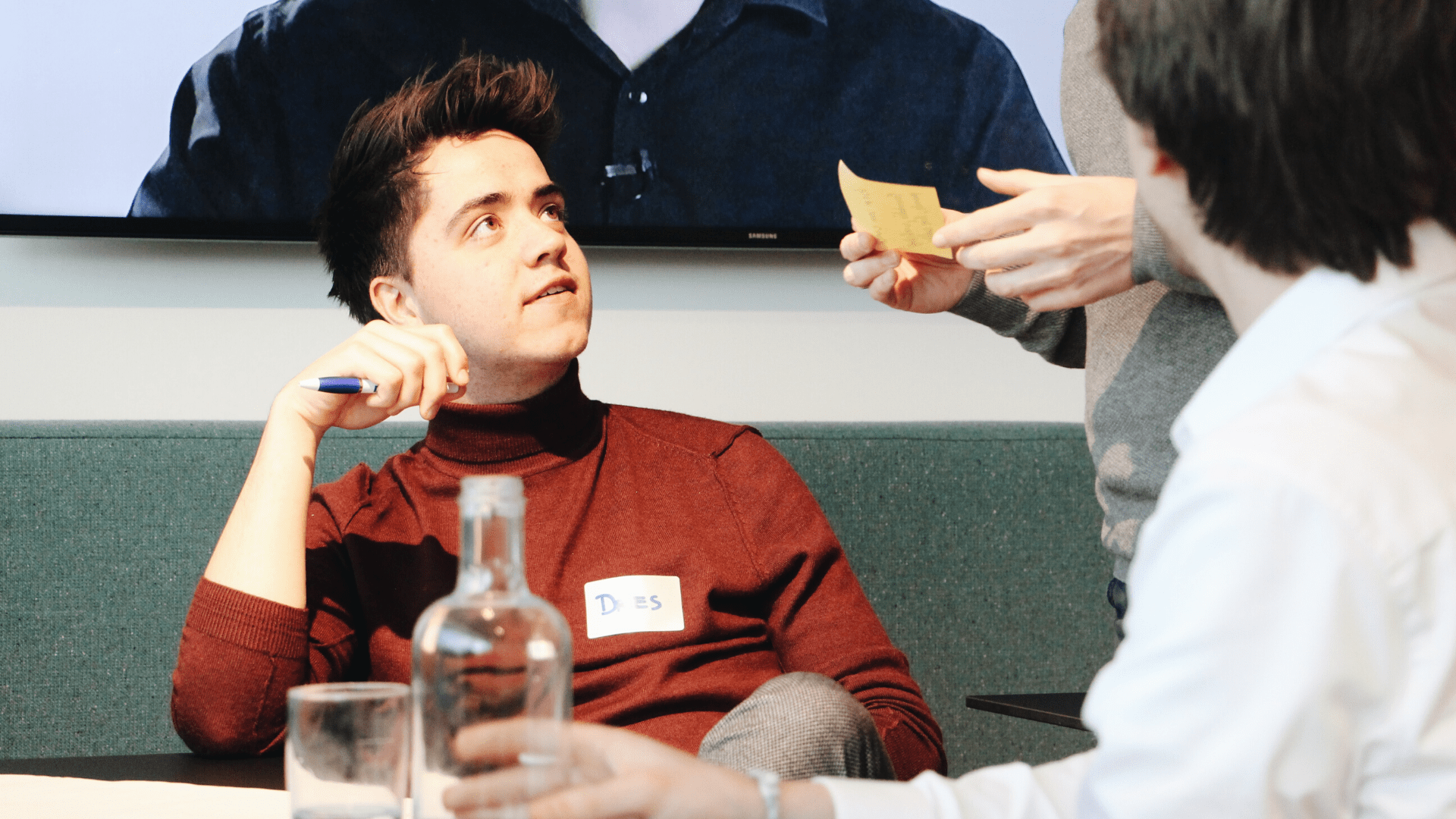
I think that’s Exellys’ strong suit. They give you the opportunity to talk about what’s important to you and encourage you to do some self-reflection. They guide you, without any hand holding, in what you need and how to match those needs to a company. That was a really strong benefit during their matching process.
What’s your role at Baloise?
I work within the IT department at Baloise. I help support their digital transformation. We try to offer our solutions, the insurance packs, to our clients digitally. Everything that’s handled manually at the moment, we are trying to digitise.
My department is known as the Service Gateway Team. There are a lot of teams within Baloise and every single one has its own specialisations. Our team connects everyone, as a sort of man in the middle, to make sure everyone is on the same page. Not just within Baloise. We’re also the backbone for external communication with clients and B2B partners.
There are a lot of different roles within the team: architects, developers, etc. My role as a Technical Analyst is called ‘designer’.
“We answer the question of how to offer clients particular services within the Baloise framework to support them even better.”
We answer the question: ‘How can we offer our clients this service within the Baloise framework?’ We make sure that all incoming requirements are listed, assessed in achievability, and that they fit within Baloises architecture.
Based on those conclusions, our developers start building those services. We check in with different teams about what they need to do their jobs, what they expect from us.
There’s a lot of communication, but also a lot of technical work. Like creating schematics in JSON of XML. Depending on the needs of the teams. We also need to provide a high-level description of all processes and services to document everything and to let everyone know what they can ask, what to expect, what they can count on us for.
It’s quite technical, but at the same time we facilitate easy communication between different teams. A great blend of hard and soft skills.
How did you experience the shift from being a student to having a job?
Communication is completely different when you’re working than at school. As a student, you’re almost always communicating with peers, people that have a similar life to yours.
When you start working, you’re suddenly surrounded by a huge variety of people, all sorts of backgrounds, age groups, degrees, departments. It’s such a big difference when you’re trying to get your message across.
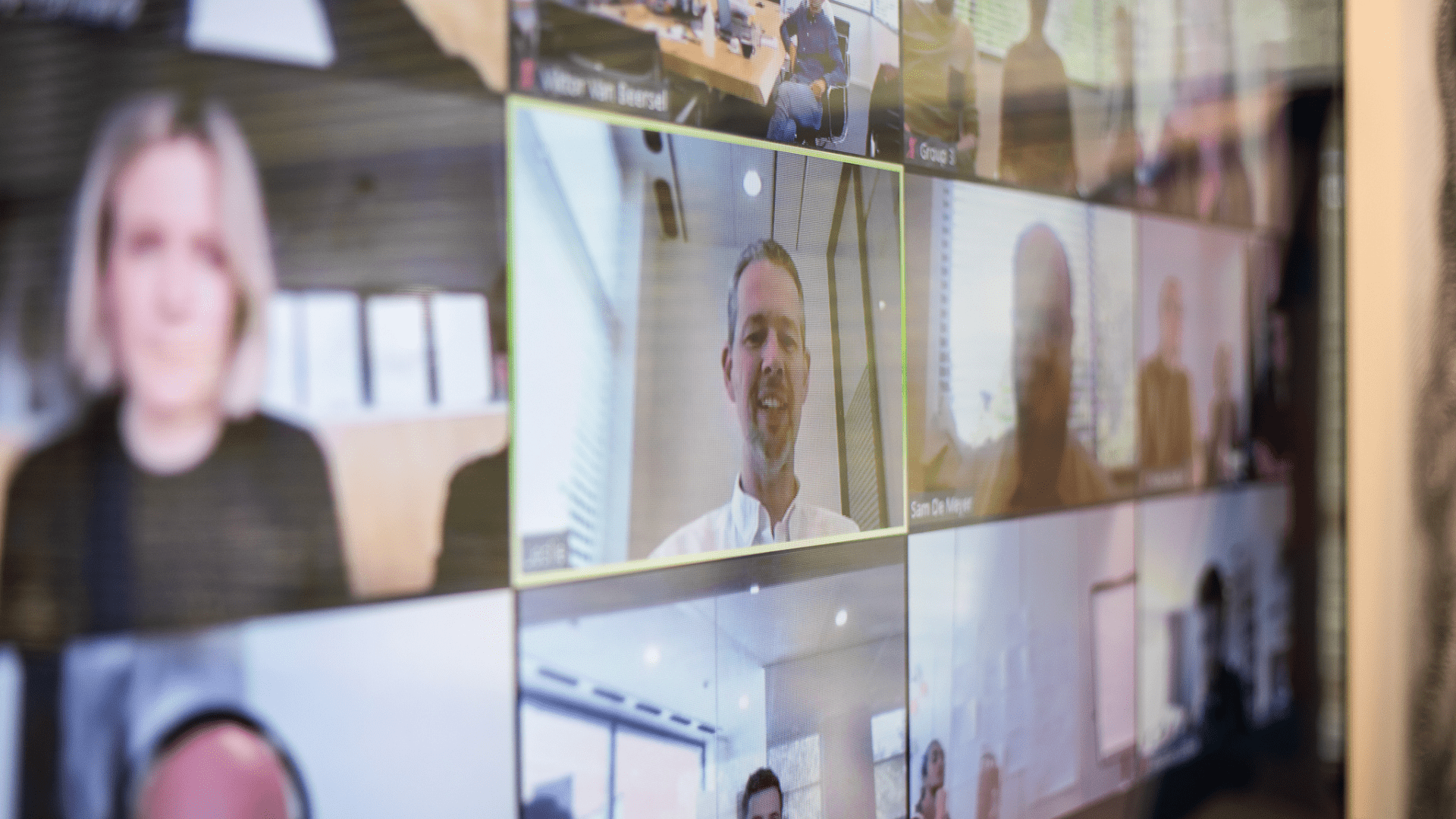
For instance, last year in March when everyone started working from home in Belgium, there was a massive shift in communication methods. Before, at Baloise, a lot of communication was handled in person. So, you can imagine that shifting to a virtual meeting world wasn’t always easy.
“Communication is completely different when you start working because you’re suddenly surrounded by a huge variety of people with all sorts of backgrounds, age groups, degrees, departments.”
It made it a little difficult to maintain good communication lines, so I decided to take it down a notch to make the transition a little easier for some of my colleagues. I started planning 5 to 15-minute conference calls to just chat, about anything, your personal life, just to help people get used to that way of working. To frame it as an effortless option and ease them into it.
You can start building on that for when they need quick updates at work as well. Just a little change in mindset, but for both sides.
Was that incongruence in communication already there in the office?
Yes, it was definitely there before the shift to remote working. Of course, working in an IT department was a plus when the shift to online was necessary, but it wasn’t as integrated at the office as you’d think.
Some people prefer stopping by your desk for a quick one-to-one while others will just ping you a message. It really depends on the person rather than the department. And for those that prefer offline communication, the shift to remote working was a bigger deal.
When that happens, you need to meet each other halfway. You start challenging yourself to adapt to other people’s preferences, but at the same time you challenge them to adapt to yours. It’s a give and take.
That’s the important part, to both be willing to make the switch. To both adapt to the other’s preferences for the sake of communication and being aligned.
What’s your biggest takeaway so far?
I learned a lot of very specific technical skills, of course. I took a BizTalk course, for instance, that taught me to view things from a similar perspective as my development colleagues and ultimately make better designs.
The biggest one, though, was the time management course I followed as part of my Exellys Start Smart Program. I still use it on a daily basis to manage the information influx through emails, chats and meetings. To structure that stream and create manageable tasks from it. It really helps you to get organised.
“Breaking down information into manageable tasks and categorising them, helps me structure my workload and really nail my responsibilities.”
Breaking down information into manageable tasks and categorising them, helps me structure my workload. The most useful tip I learned, a system I implement daily, is to divide tasks in 3 categories:
- Tasks that take 5 minutes or less to complete. You complete those immediately.
- The second category takes a little more time, might take some research. These tasks are planned later in the day or week.
- Long term tasks. You keep an eye on them and plan moments to check your progress every now and again. Make sure you make the time for that.
They’re really useful methods to structure your workday and make it as pleasant as possible, to make sure that you can really nail the responsibilities you take on.
Of course, you make the system your own as you grow more experienced and learn more about yourself and your job. Which format you’ll exactly use is often very personal but finding a system that works for you is crucial. Of course, this is only possible if you actually spend time thinking, discussing and researching the topic.
Finally, how does your professional life compare to your life as a student?
It’s a completely different rhythm. Being able to plan your own time off is brilliant, for instance. There’s a lot of benefits to both, but they’re such completely different lifestyles.
Your professional life provides you with a lot of freedom, because you’ve got financial independence. I went on Erasmus to Sweden in my final year, and when I came back and started working here, I was ready to start moving on really quickly.
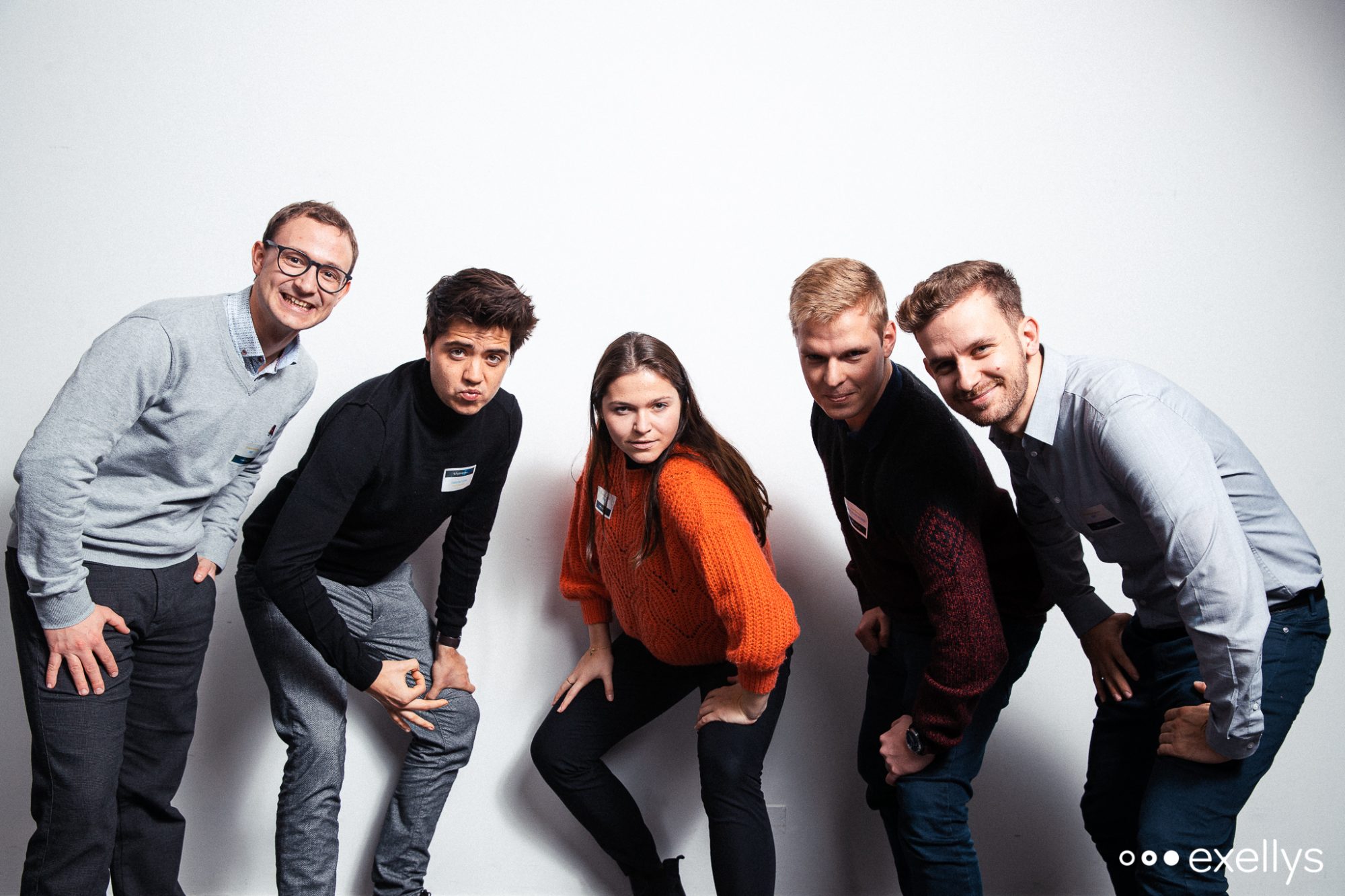
While I’m building my own house, I started cohousing, and a lot of things like that become possible when you start working. You can really start planning your future now. I also love having more responsibilities. It’s exciting to know that what you’re doing makes a difference.
“I love having more responsibilities. It’s exciting to know that what you’re doing makes a difference.”
As a student, you need to switch contexts a lot throughout the day. One moment you’re in an analytical course, the other you’re working on soft skills. It’s a lot more difficult to stay focused on a single thing when you’re going back and forth like that.
My favourite part is that you’ve got a lot more control over things and a lot more focus. At my job, I’ve got the opportunity to really dig into something and remain focused on it. I love being able to intensively work on something in that way, and it also really helps you develop your skills. It’s the best way to be.
Thanks for your two cents, Dries!
My pleasure!
About Exellys
Exellys is a Tech Talent Incubator. We match ambitious companies with the finest tech talent. Are you ready to drive the innovations of tomorrow? Ready to make an impact and become a future-fit digital leader
Whether you are a graduate or (young) professional, Exellys will unlock your full potential by guiding you to a challenging work environment that perfectly matches your personality, expectations and ambitions.
On top of that, you are enrolled in one of our very own training and coaching programs (based on your personal and professional ambition and experience). This means that, while working as an Exellys consultant, we are helping you to bridge your ambition to excellence.
Through intensive training and coaching, you’ll gain the essential skills, competencies and knowledge necessary to become the highly effective professional you aim to be.
Become an Exellyst and get in touch with us today!
Tags: career , data , exellyst story
